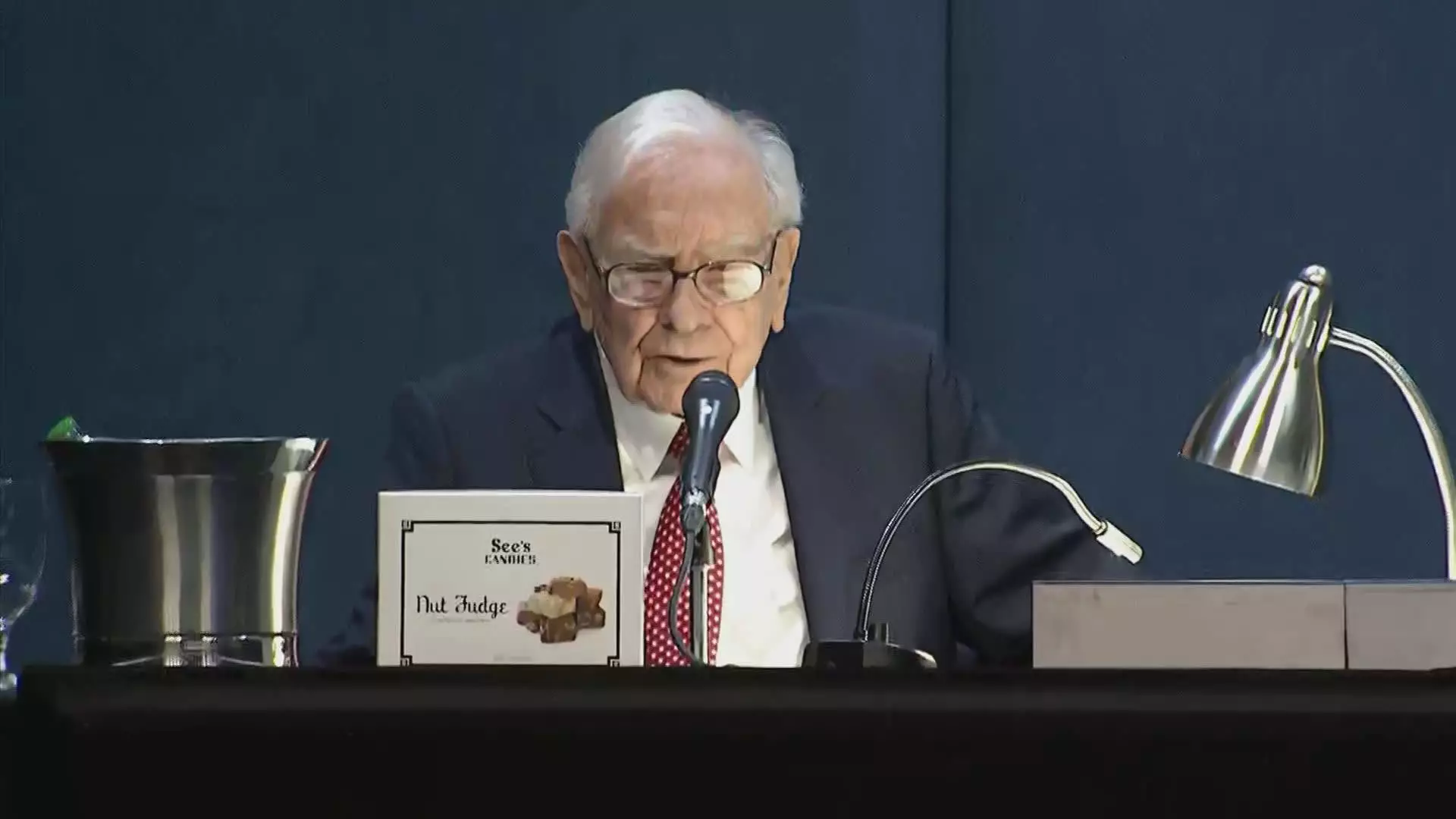In an era when market sentiment swings like a pendulum, Berkshire Hathaway stands as a resilient bastion of safety. While the S&P 500 took a staggering 9.1% nosedive, Warren Buffett’s conglomerate merely receded by 6.2%. This extraordinary performance, especially in the face of President Donald Trump’s instigative tariffs, reflects not just a company’s ability to withstand external shocks, but also a well-structured financial strategy. With an enviable cash reserve of approximately $334 billion as of the end of 2024, Berkshire Hathaway operates not just as a company but as a fortress for its investors.
Defensive Assets in Uncertain Times
Berkshire Hathaway’s portfolio is uniquely diversified across various sectors, including insurance, energy, and manufacturing, making it an attractive prospect during economic downturns. This defensive posture allows it to retain value even as broader market indices crumble. In an investment environment overshadowed by fear and uncertainty, possessing a stake in a company with as robust a financial backbone as Berkshire Hathaway stands as a strategic advantage.
When the tech-heavy Nasdaq Composite dipped by 10%, and the Dow Jones Industrial Average experienced shocking losses, those who turned to Berkshire compelled us to ask: what do you want from your investments? While some investors offloaded tech stocks fearing regulatory crackdowns and international retaliation, others clung to the stability that Berkshire represents. This dichotomy highlights the strategic imperative of investing in companies that are less susceptible to political whimsy.
The Psychological Edge of Stability
Investors thrive on the sentiment that their fortunes are secure, and Berkshire Hathaway embodies that sentiment through its historical performance and consistency. The company’s Class B shares remained the only ones among the top ten in the S&P that traded above its 200-day moving average—a crucial indicator for many traders. As Rich Ross from Evercore ISI articulated, while this metric isn’t definitive, it conveys an essential strength and resilience that stands in stark contrast to the volatility permeating the market.
The perception of security provided by Berkshire establishes a psychological edge. Investors want assurance that their money is not merely an entry in a volatile ledger but a ticket to stability. Berkshire’s enduring reliability, particularly during turbulent periods, reinforces its status as an investment of choice for conservatives and liberals alike.
A Buffet of Opportunities
One of the most intriguing aspects of Berkshire’s performance lies in its lack of dependency on the unpredictable political landscape. As Josh Brown from Ritholtz Wealth Management noted, the conglomerate thrives independently of presidential whims or market swings dictated by international politics. It doesn’t flutter with the latest executive tweets; it moves with the organic rhythms of the U.S. economy.
In a marketplace riddled with speculation and panic, this unique position presents an attractive counter-narrative: the idea that robust companies can thrive without a symbiotic relationship with governmental policy. It invites investors to reevaluate their approaches—should they chase the whims of tech giants or invest in solid companies with sustainable business models like Berkshire Hathaway?
Buffett’s Leadership and Vision
At the core of Berkshire Hathaway’s triumph is Warren Buffett himself—a figure synonymous with wisdom, patience, and a long-term vision that contrasts sharply with today’s frequently short-sighted market strategies. Buffett’s recent denials regarding social media comments alleging his endorsement of Trump’s market manipulation indicate a careful maintenance of his reputation and the values underlying Berkshire’s operations.
His stewardship has steered the company through countless economic cycles, bolstering trust among investors. For anyone embracing a center-right liberal ethos, Buffett exemplifies the ideal balance between fiscal responsibility and opportunistic growth, reminding us that in business as much as in politics, pure pragmatism often eclipses ideology.
In an increasingly polarized world, with ideologies like socialism and unregulated capitalism competing for prominence, having a steady guide like Buffett bolsters a center-right perspective. His approach has underscored that sound fiscal policies and responsible governance can create spaces where businesses flourish—values worth championing amidst the noise.
Berkshire Hathaway’s performance amid a tempestuous political landscape gives us something significant to consider: the power of prudent investment strategies in a world that often seems chaotic.

